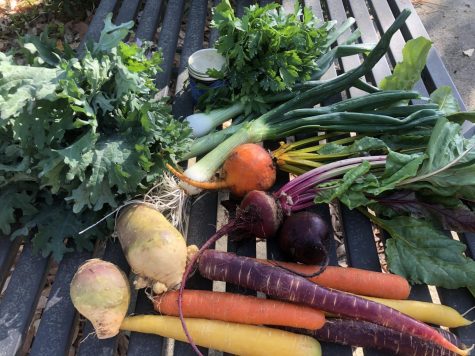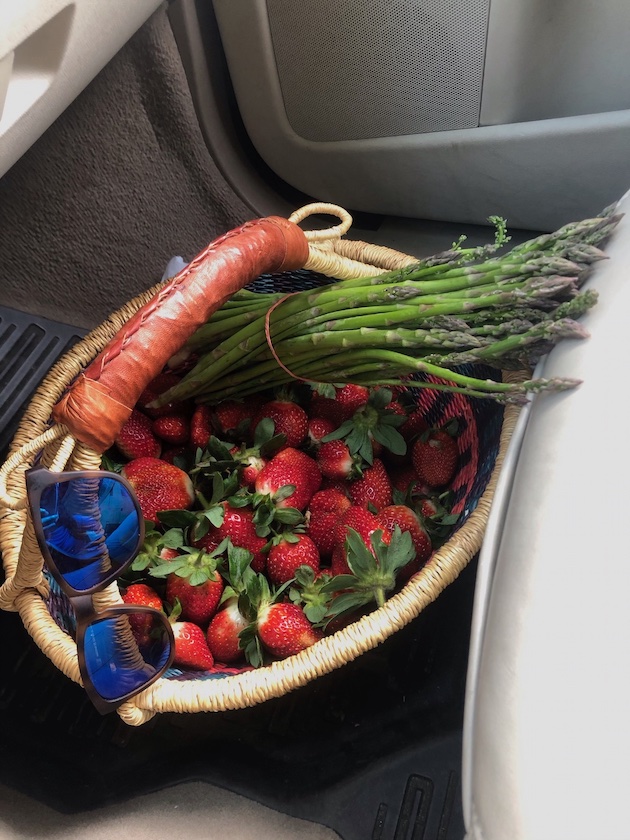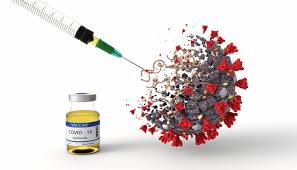What Everyone CAN Do to Heal the Earth
I challenge you to eat entirely plant-based for one week :)
There are many issues with our world. Besides the domestic terrorism and riots of January 6, the misinformation and hate spread by Mr. Trump, chronic poverty, and human rights violations, among many others, there is one issue that will truthfully destroy the planet as we know it if there is no action taken.
Hear me out, listen to the science: Climate change and Global warming is real, and for decades we have known it and chosen to do nothing about it. Some of you, I’m sure, do not believe in it. Do you also not believe that chlorophyll absorbs light for a plant’s photosynthesis? Do you not believe that human bodies are made up of 60% of water? Do you not believe that Jupiter has 79 moons? Because these facts have all been proven over and over by scientists worldwide. This is no “hoax,” as our dearly deranged president has suggested.
We are in the midst of a pandemic that stems from this issue. Humans have been pushing further and further into the wild, demolishing trees, jungle, and animal populations, and as a result of that, a bat that suddenly found him/her self in civilization was caught and eaten, spreading the Coronavirus. If we continue the way we have, we will see more years of record hurricanes like this one, more epidemics and pandemics more frequently, and more injustices to our planet.
Why should we care? Because these are long-term problems that will show themselves in our lifetimes. We bear the direct hit of our parents’ and grandparents’ and even our great-grandparents’ actions. Their careless attitudes have caused this.

So yes, we have every right to be angry about this. We have every right to be pessimistic about this. But we have no right to continue their legacy. What we really need is for our world leaders to push legislation and regulations. What is more practical, and what we can do every day, is exactly what this article is about. I just finished reading Sir David Attenborough’s new book: called A Life of Our Planet. Read it!! He describes the issues the planet is facing and what we can do about it. This was the inspiration for this article, in which I will list simple practices that you can implement in your everyday life. And for those who are already taking the initiative (kudos!) I will add some more advanced suggestions too.
- Reduce plastic Consumption (obviously). We know that plastic contributes to pollution from the day it is produced, to the day it deteriorates, ONE THOUSAND years later. Some things you can do are…
- Not use plastic bottles. Seriously, why do people use plastic ones in their houses?!?!?!?!? It’s not like you don’t have a faucet and a cup!!
- Also use a refillable water bottle. It’s simple. If you’re out and you need a drink, opt for a glass bottle instead.
- Use bar soap, shampoo, conditioner: It actually does work. I recommend the sandalwood scent from The Earthling Co. The conditioner can double as shaving cream too. You can even use bar soap and a scrubber for dishes.

Shampoo + Conditioner bars! - If you go to Starbucks (or any coffee shop) every morning, bring your own cup.
- Refuse a straw!
- Use glass containers instead of Tupperware.
- Take a cloth bag shopping.
- Use compostable trash and dog bags.
- Buy in bulk at the grocery store to reduce packaging use.
- Wear natural clothing (yes, polyester, nylon, and acrylic are plastic).
- Put things in their correct recycling containers.
- Buy eggs packaged in cardboard, not styrofoam or plastic.
- David Attenborough suggests that the most beneficial thing we can do is “rewild” our environment. So…
- Plant a garden in your yard.
- Bring plants in your house. Decorate your room with them!

house plants - Don’t use pesticides or fertilizers.
- Grow your own food/vegetables.
- Plant trees.
- Allow nature to roam freely in your yard.
- Maybe start a beehive (8 species of them are endangered!)
- Start a community garden/pocket park in your neighborhood. There are a few in mine and they are lovely places to relax in.
- Not-so-fun-fact: 4 Billion hectares, or 80% of our farmland is an area that would cover both North and South America. This land is all reserved for meat production- whether it be crops to feed the animals or the animals themselves. This section is about how you can have a sustainable diet.
- Buy local! There are so many farms around Charleston that sell their fresh veggies. CSAs are community supported agriculture programs, and there are so many of them. For example, the “Twenty Bag” is something that my family participates in, where we spend $20 for a huge paper bag of local seasonal vegetables, honey, rice, and eggs (depending on the season) every week. Even at the grocery store you can find South Carolina- grown produce.

There are many u-pick farms in the Charleston area… strawberries are in season in the spring! - Eat more of a variety of fresh foods!
- Fish- fish and seafood is great, except for when overfishing is involved- an enormous issue to our oceans. 90% of fish populations have been overfished, and the industrial approach to fish farms has caused issues such as antibiotics to spread into neighboring waters, disease to spread, and removing food that wild fish eat to give to farmed fish. So eat sustainably caught fish! Check the company, and look for certifications such as MSC’s logo- Marine Stewardship council. Buy local and a variety of fish you may not normally eat (again).
- Don’t eat meat. It is possible to get all necessary nutrients (and more!) from a plant-based diet. Yes, I know that meat is a crucial part of people’s dietary culture, but it truly isn’t sustainable. Attenborough reports that “we don’t have enough land on Earth” to continue the meat production levels of today. Diets with less meat have been proven to reduce heart disease, obesity, and some cancers. Plant-based diets are healthier and more sustainable.

CSA haul - Don’t eat at fast food restaurants. This is obvious. The food is mass-produced, travels thousands of miles, animals are mistreated, and the food is simply bad for you.
- Buy local! There are so many farms around Charleston that sell their fresh veggies. CSAs are community supported agriculture programs, and there are so many of them. For example, the “Twenty Bag” is something that my family participates in, where we spend $20 for a huge paper bag of local seasonal vegetables, honey, rice, and eggs (depending on the season) every week. Even at the grocery store you can find South Carolina- grown produce.
- As for energy, there are less suggestions. It truly is up to leaders to drop the facade that profit is more important than the earth, and start producing clean energy. We are emitting waaaay too much carbon. Here’s some things you can do to save energy:
- Get your family to install solar panels if possible
- Use lights only when you need them
- Use minimal amounts of water
- Fill up your car with gas only when truly necessary- and try not to drive more than you need to. Walk, bike, skateboard, etc when possible.

There is so much you can do to pitch in and help the earth, more than what is in this article. We only have one, you know, and the facts are devastating. If there’s one thing that you take away from this article, I hope it’s this: listen to the science, and do your part.


















